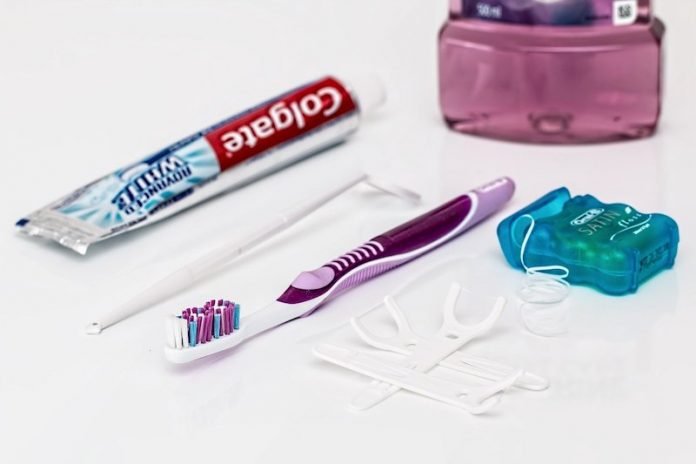
Do probiotics prevent gum disease? Is flossing necessary? Many patients are unable to confidently answer these questions and more due to the abundance of conflicting medical information.
In a new study from the University at Buffalo, researchers found examined which oral hygiene tools actually prevent gum disease.
They found only a handful of self-administered interventions provide additional protection against gingivitis and periodontitis beyond brushing one’s teeth with a basic toothbrush.
At the moment, all other oral hygiene interventions are only supported by insufficient evidence.
In the study, the team examined basic toothbrush, interdental brush, water pick, chlorhexidine gluconate (CHX), cetylpyridinium chloride (CPC) and essential oil (Listerine) mouth rinses.
They found tooth brushing is the cornerstone of daily oral hygiene and is a reliable way to control dental plaque.
Interdental brushes and water picks performed better than other interdental oral hygiene devices at reducing gingivitis, and both should be used in combination with daily tooth brushing to prevent gum disease.
Among the numerous mouth rinses examined, those based on CHX, CPC, and essential oils (such as Listerine) were proven to be effective at strongly reducing plaque and gingivitis.
While not effective at fighting gingivitis, toothpicks were useful for monitoring gum health. By gently prodding the gums with a toothpick and monitoring for bleeding, patients could detect signs of gum disease.
The team also found that triclosan toothpastes and mouth rinses significantly reduced plaque and gingivitis, however, the compound is linked to the development of various types of cancers and reproductive defects.
Triclosan has been removed from most popular toothpastes in the U.S.
The team also found that electric-powered toothbrushes are no more effective at reducing plaque and gingivitis than a basic toothbrush.
And little evidence has been published in support of dental floss—the mainstay of interdental cleaning—to reduce plaque and gingivitis. But the team says flossing can be beneficial.
Floss is especially useful to remove interdental plaque for people who have tight space between their teeth. Floss also likely reduces the risk for cavities that form between the teeth.
The team found insufficient evidence that mouthwashes based on tea tree oil, green tea, anti-inflammatory agents, hydrogen peroxide, sodium benzoate, stannous fluoride, hexetidine or delmopinol reduced gingivitis.
The use of probiotics, although promising as a preventive strategy against gum disease, is unproven. The researchers found little evidence that supports the claim that dietary supplements improve gum health.
The team also found insufficient evidence that professional plaque removal (known as scaling, the process of removing plaque with a scraper) prevents gum disease.
The study is published in the Journal of the International Academy of Periodontology. One author of the study is Frank Scannapieco, DMD, Ph.D.
Copyright © 2021 Knowridge Science Report. All rights reserved.



